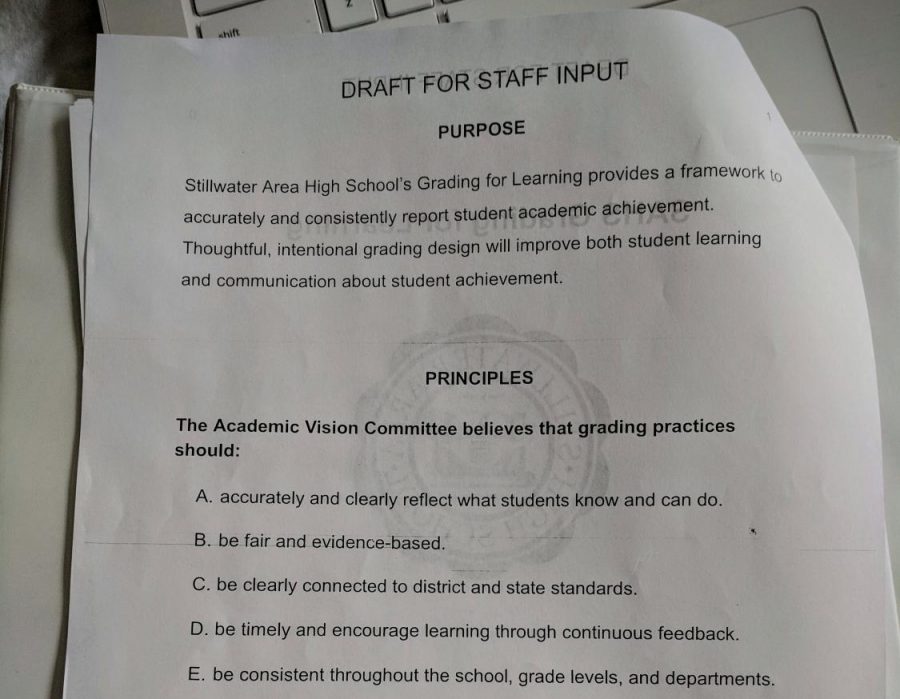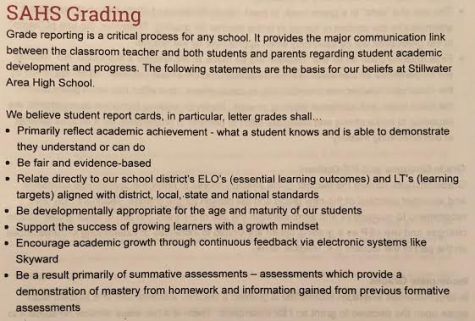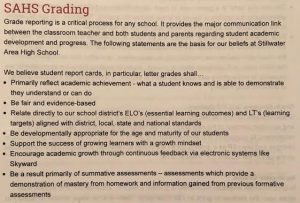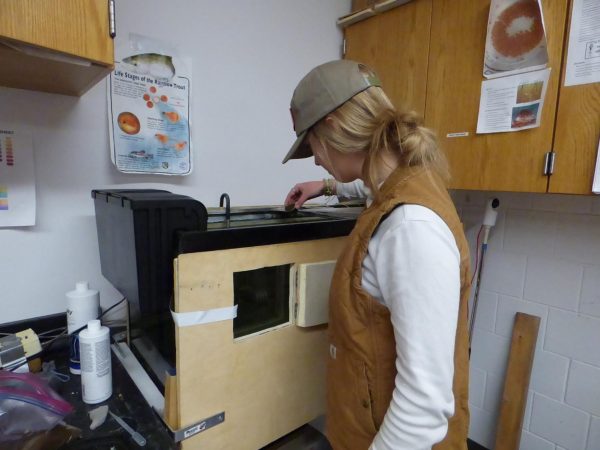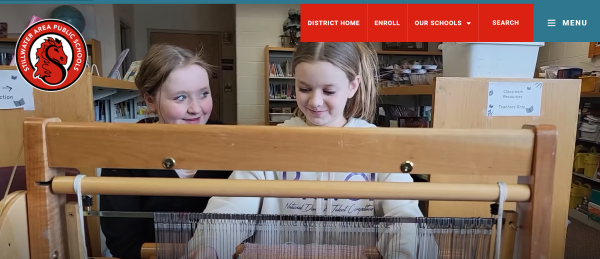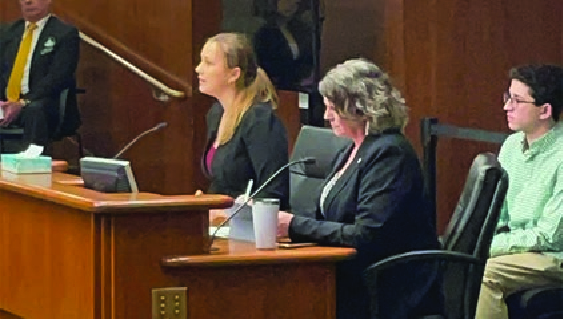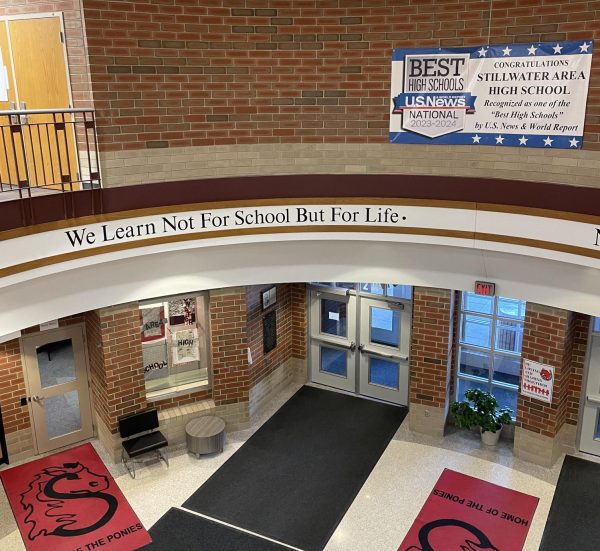Academic Vision team proposes new grading policy draft
The Academic Vision Committee’s new draft of a school wide grading policy released on Jan 7. While still a rough draft, it is getting a lot of feedback from staff.
March 20, 2019
In January, the school’s Academic Vision team created a draft for a new school-wide grading policy. The draft was distributed to staff around the building to gather constructive feedback. Ideas for this draft arose when administration and teachers were getting multiple questions and comments from parents about how inconsistent grading systems look throughout the school.
In 2014, the high school implemented a grading policy trying to unify teacher’s grading styles. Around this same time, both junior high schools also implemented grading policies, so the high school followed their lead. That policy said teachers should focus on national standards and LT’s (learning targets), and that each teacher knows their classroom so they can decide how they grade students’ work.
The Academic Vision Committee has spent a year focusing on observing the school and its systems, and finding ways to improve the academic experience for students and staff. The team has a broad spectrum of what they cover, and at the moment grading practices are on the top of that list.
My professional educator opinion is that grades need to reflect what students know and can do.
— Andrea Schuler
Corey Quick, English teacher and Academic Vision Team co-facilitator said, “The Academic Vision Committee is a group of mostly teachers, and our job is to address things in our school that deal with academics. For instance we wouldn’t talk about extracurriculars or a pep fest or things like that. We rather handle what should our school look like from an academic standpoint, things like, how should we grade and how much homework should we have.”
The committee’s passion about students shows how much they care about them and their academic careers. They are focused on creating a policy to make grading a lot more consistent and easy for students and teachers.
“What the most important thing is, is what unifies everything. That teachers have to be more consistent in what we do. I think it’s ridiculously unfair to students for you to say, have to go through your day and work under three, four, five or even six different grading policies and try to keep those in your head. It’s a really it’s unfair measuring and can be very confusing,” Quick added.
After much research from the committee, the team has compiled a draft of what the new grading policy could look like in the near future. Knowing not all of it will go into effect, the most important thing the team is focused on is to have a student’s grade clearly reflect the student’s knowledge, not how a student acts in class.
Instructional coach Andrea Schuler said, “My professional educator opinion is that grades need to reflect what students know and can do. And that’s definitely most important, that we work on bringing the grades, away from behaviors and more towards what students actually can do. The purpose of grades is that they communicate something to students and to families and even into colleges, so that communication message should be consistent and not as open to interpretation as it currently is.”
One concern is how this would possibly affect teachers, gradebooks and classrooms. Most teachers have their own way of grading with multiple categories and different focuses. Some teachers and possibly students would be concerned on how this would affect them. For instance, chemistry is different from a lot of other subjects in the school. It focuses on a lot of topics in depth confusing topics while, “building into itself.”
Chemistry teacher Shelly Holmberg added, “I think it’s awesome that this is all being discussed, I think it’s important that as a science departments we need to specify what should be done. I think it’s important that we try to be consistent with everybody. Do I think that’s hard? Yes and I think it’s hard because I teach chemistry, which can look a lot different than English or even math. But it’s always nice to re-evaluate what you do, it’s something you have to in this profession.”
The Academic Vision Committee is focused on what’s best for the students and staff. They will continue working until an appropriate policy that works for the school has been made.


